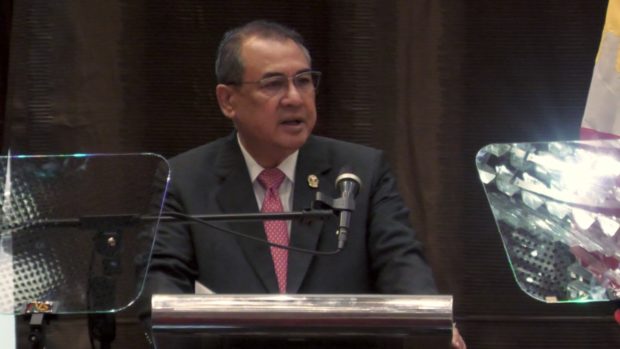Chief justice proposes compensation for trafficking victims
MANILA, Philippines — Chief Justice Alexander Gesmundo wants victims of human trafficking included among the beneficiaries of the government’s Victim Compensation Fund (VCF).
He said he would make that recommendation to the Justice Sector Coordinating Council (JSCC), the coordinating body between the Supreme Court, the Department of Justice (DOJ), the Department of the Interior and Local Government and other agencies.
Gesmundo broached that idea in Zamboanga City last Friday, as he led the launching of the Trafficking-Free Justice Zone there.
The Supreme Court had said earlier it is establishing justice zones in various parts of the country, in line with the government’s campaign against human trafficking.
The VCF was established by Republic Act (RA) No. 7309, also called the Law Creating the Board of Claims. The board, which is the fund’s administrator, is under the DOJ.
Article continues after this advertisementRA 7309 provides monetary compensation to victims of arbitrary or illegal detention and of violent crimes. The latter is further defined as including offenses committed with “malice” or “cruelty” and resulting in “physical and/or psychological injuries.”
Article continues after this advertisement‘Vicious cycle’
Gesmundo said the VCF has been used “principally for the witness protection program and for unwarranted incarcerations.”
Its funds, he said, are generated from docket fees collected with every new case filed in the courts.
The Chief Justice said he would recommend an increase in the fund, so it “can provide the much-needed assistance to victims, not only to sustain them and their families pending trial, but hopefully to give them a fresh start, post-judgment.”
“This hopefully will finally put a stop to the vicious cycle of victimization caused by economic hardships,” Gesmundo said further, as he explained that with the increase in the VCF, trafficking victims “will be less prone to the temptation of monetary settlements” with the syndicates.
He said the launching of the justice zone in Zamboanga City shows that the judiciary and the executive are “standing together” against human trafficking in the country.
“[W]e will not only tighten all loopholes in the investigation, arrest, prosecution, trial and judgment phases of anti-trafficking cases, but we will also pilot breakthrough initiatives…that will hopefully pave the way for a more effective counter-trafficking program,” Gesmundo said.
Among those planned initiatives, he said, are ensuring protection for trafficking victims, reorienting the courts and other “justice sector actors” in treating the victims with sensitivity, and requiring the video recording of all judicial proceedings “to insulate the victims from reliving their harrowing experiences [when] face to face with their abusers, [provided this is] within the confines allowed by the Constitution.”
